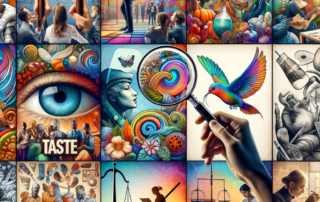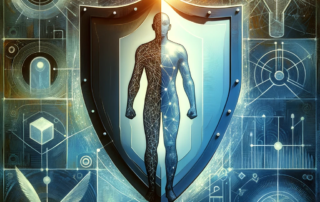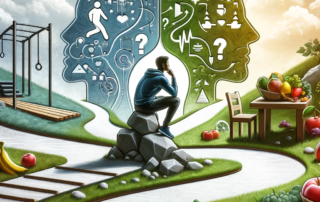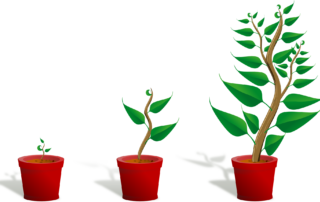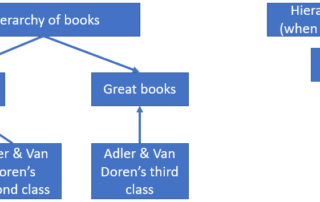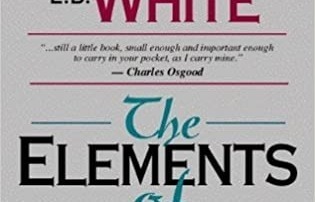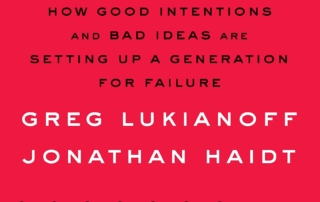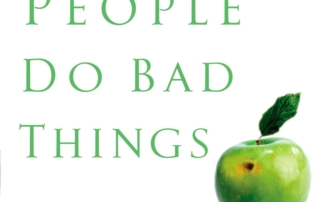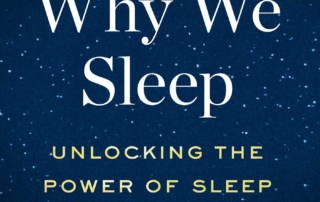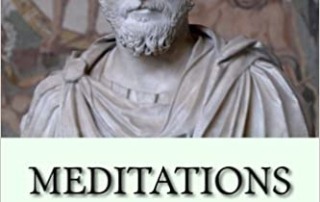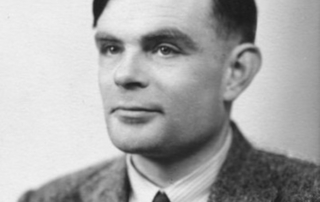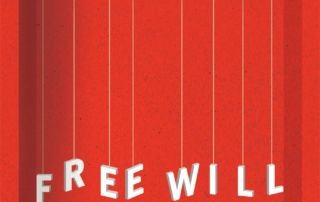Proxies: How Useful Shortcuts can Lead you Astray
But in all of those cases, we focus on the shortcut, the proxy, rather than our true desire... As useful as these proxies can be most of the time, in decisions that truly matter, we must remember that they are only proxies. We must optimize for what we truly desire - wisdom, mentorship, faithfulness - rather than its proxy... Proxies are only useful if you know they are proxies.
The Drug of Emotional Extremes: From Italy to Situationships
This is often the consequence of experiencing emotional extremes within the same context: we crave the next high. Every valley makes us feel like the peak is going to get us a high we've never experienced before. And so we mindlessly chase it like an addict... Replace that drug with something deep and meaningful. Something that makes your heart sing, your eyes relax and your soul breathe a sigh of fulfilment.
Hypothetical vs Abstracted Situations
Hypothetical situations can be helpful in prompting you to abstract out situations based on your experience, but used beyond that, they can hold danger: forcing you to give an answer to a situation that you have little prior experience with, an answer that you later find out is at odds at with your deeper moral compass.
Great Taste: The Creative Edge in Creative Endeavours
Great artists (be it musicians, painters, dancers, writers or creatives of any type) sometimes don't have any special skills, but one: taste. They have developed a discerning eye for what makes a great product or outcome... Great taste can help not only your creative professional aspirations, but your personal life as well: picking the right outfit, choosing your friends, or finding a partner.
Your mentors are hiding in plain sight
Fortunately, with the advent of podcasts and social media, you have access to the private life of a lot of potential mentors. If you can compose an image of your perfect self, you can find people who possess some of your desired qualities. You can then follow those people to see how they think and act... Over time, with the help of your mentors, you will grow to be your perfect self.
Compromises are overrated: enjoy your partner’s gifts
...compromises can be a vicious, often unintended, slash across the open, vulnerable soul of your partner, across their core essence. But when compromises are approached reflectively, they have the potential to deepen the connection
Shaping your boxes for relationship success
By understanding yourself better, you naturally refine your box of the Other. This refinement is based on the premise that we all have not only a box of the Other but also a box of ourselves in relation to the Other. Through self-reflection — paced according to your own needs and supported by books and friends — you develop a more sophisticated worldview. Through that new lens, you no longer need to stare into the abyss of past experiences to learn how the box of the Other was built; all you will need is a quick peek, and that box will start morphing in wonderful, colourful ways.
The value of marriage
Oh, and what beauty life holds once that door shuts. To know that your spouse will learn all your limitations and imperfections, and you will learn about them, and they will be there still. This act of extreme vulnerability holds potential for great wisdom and peace. There truly is no limitation on the resilience and strength we can muster once there is no back door.
Is that really the path?
On the one hand, you are likely to underestimate the value of existing traditions due to arrogance ("I know better than everyone else before me") or low tolerance for uncertainty ("This buzzfeed article supports my intuitions so let's stop the research process here and go with it"). On the other hand, you are likely to underestimate your own intuitions and desires due to dogmatism ("Let's just go with the status quo") or desire to make others happy ("I will do this for my friends even though this is not really what I want").
Your relationship is only as solid as your boxes
This framing highlights the responsibility the woman has to form a meaningful, above-her-expectations relationship: either she must know how to manage the destabilisation process and fully trust the man or 2) she must have developed a box for such a man through self-reflective work.
How to be there for your friend when bad things happen
Bad things will happen to you - losing a job, breaking up with a partner or the death of a loved one. Worse: they will happen to the people you love. Even worse: nobody prepares us how to be there for our loved ones when times are rough. Here are a few things I've learned...
Treat books like trees: don’t highlight the branches, nurture the root instead
So, refuse to waste time mindlessly highlighting the 6 tactics on how to communicate or the 12 strategies for leadership. Instead, seek what it is like to be an effective, inspiring communicator or how a great leader sees the world.
Vulnerable but impenetrable
Seek to be vulnerable but impenetrable... Trust that, on net, the value in a deeper connection to the world is worth the risk. Ensure that should your vulnerability be taken advantage of, your self is resilient and robust enough to withstand the storm.
Don’t set goals. Reflect instead.
Maybe after hundreds of hours of reflection and experience, then you can set yourself goals. But, at that point, you are probably already the kind of person who embodies that value. And at that point, of what use is setting a goal to do something to get you to express a value, if the behaviours downstream of that value are already the default ones?
Knowing Thy Future Self: Formalising the Process of Predicting Our Own Future
Whether we want it or not, we are constantly thinking about the future and preparing accordingly. Our currents thoughts and actions are tightly intertwined with the conclusions we draw based on the predictions about our own future selves. Hence, sharpening the quality of our future-predictions can save us hours, days, or even decades of suffering and instead make our current – and future – selves more effective in the world.
The Dark Side of Seeking Discomfort
Going regularly outside your zone of comfort is necessary to expand your being, experience positive emotions and prevent stagnation. But it is not sufficient – you also need to ensure that going into the realm of chaos prepared, with a sword, on which your values are inscribed. Indeed, going into the zone of discomfort should be in service of a value you hold and the time and effort you spend in that zone should be proportional to the value’s importance in your life – that way you avoid going into the realm of chaos, where anxiety awaits, without a chance for acquiring anything of lasting worth.
The Scaling Problem of Empathy
...starting from the observations that experientially we are quickly and enigmatically able to ‘click’ with and relate to specific people, I argue that it’s possible to have that experience with any one and any experience. In the case of people with whom we resonate deeply, the experiences are already well-matched, while in other circumstances we have to scale our own experiences to match theirs. This scaling inevitably introduces noise in our capacity to effectively empathize but with patience and perseverance, we can better calibrate our scaling ability and thus become better at empathizing with one another.
Looking Back: Lessons Learned from an Undergraduate Degree
One distinctive feature we have as a species is that we know of the existence of the future and can plan accordingly. It was obvious to me from the start of my degree that there would be a lot of pressure to find a career after graduating, so I took steps to alleviate that. I explored different career paths to find my spark and adopted a proactive and humble attitude. These steps facilitated the process of developing key skills that would increase my career capital in the long term. For me, this is a liberating conclusion: adopting a mindset, based on the three lessons highlighted in this meditation, can make my future self's life just a little bit easier.
So Many Books So Little Time: Integrating Book Summaries in the Reading Hierarchy
Hence, within a broader view of books and reading, book summaries find their place. This renders reading purists’ militant rejection of book summaries as a source of knowledge equivalent to throwing away the baby with the bathwater.
Book Summary – Elements of Style by William Strunk and E. B. White
This summary is done as a slideshow as it's easier to follow and reference.
Thoughts on Echo Chambers and Podcasts
I have simply found people that I resonate with and I would like to grow with by using their knowledge and expertise. This is an echo chamber that is worth being in.
Book Summary & Review – The Coddling of the American Mind: How Good Intentions and Bad Ideas Are Setting Up a Generation for a Failure by Greg Lukianoff and Jonathan Haidt
In an analysis of contemporary culture, Jonathan Haidt and Greg Lukianoff demonstrate how contradictions to ancient wisdom and modern research have prevailed in recent years and have produced dire consequences such as an increase in violence and cognitive distortions. These contradictions they call the three Great Untruths: ‘What doesn’t kill you makes you stronger’, ‘Always trust your feelings’, ‘Life is a battle between good people and evil people’.
Book Summary – Why Good People Do Bad Things: Understanding Our Darker Selves by James Hollis
All in all, the book offers great psychological insights into our psyche. It encourages us to regularly take stock of our multiple selves and deeper, hidden, sometimes ugly, parts of ourselves. A dialogue with our Shadow can drive us to live an integrated, wholesome life. Adopted on a global scale, Shadow work will inevitably, in my opinion, lead to a better humanity, a better society, a better world.
Book Summary & Review – Why We Sleep: The New Science of Sleep and Dreams by Matthew Walker
All in all, despite minor limitations, the Matthew Walker’s Why We Sleep is one of those rare books that contains the sine qua non of good writing – it changes the way you view the world.
Book Summary – Meditations by Marcus Aurelius
When I reflect on Marcus Aurelius’ meditations on what it means to live a good life, it seems to me that despite the fact that Marcus' answer is millennia-old, we haven't got much closer to a better answer than he did. We still know that living according to your nature will bring you great happiness; we've further explored our minds' capacities; now, we quantifiably know that authenticity, mindfulness, reflections and truth can increase one's satisfaction and fulfilment and we've seen cultures for whom death is indeed treated as a rite of passage and something to be celebrated. Yet, we still seem to struggle in the practice of such 'obvious' truths...
Can Self-Deception Be Advantageous? A Critical Analysis of Evolutionary Explanations
That other people lie is not surprising to anyone. What is less acknowledged is the fact that all too often we also lie to ourselves. Therefore, a better understanding of why self-deception occurs is pressing. Unfortunately, philosophical debates, such as that surrounding the dual representation paradox, have stumbled scientific advancements for too long and it’s high time to break the vicious cycle. VH&T break the shackles of endless, abstract arguments and lay out an empirically-driven approach to self-deception in an attempt to stimulate research from biologists, biological mathematicians, evolutionary psychologist and others. Although some important aspects of this new proposal are being called into question, such as the costs and evolutionary stability of self-deception, it remains a valuable theory that accounts for a wide range of findings and makes testable predictions. Call it self-deception but I believe that VH&T’s theory lays out the foundation for a complete understanding of self-deception.
The Limitations of Human Knowledge: The Halting Problem and Godel’s Incompleteness Theorems
But then again, what if there are universal truths to be known? Physics and mathematics, among other disciplines, are deeply concerned with finding universals and explaining everything in neat equations. Are their efforts in vain? The position you take to the above two problems will give you an answer to that one too.
Radical Claims: Fallible, But Necessary for Knowledge Production
Through radical claims you push the boundaries of knowledge. Integrating and reconciling those radical claims is how you establish the foundations of knowledge.
Book Summary – The Science Delusion: Freeing the Spirit of Enquiry by Rupert Sheldrake
Sheldrake’s The Science Delusion (2013) is an ambitious challenge to the materialistic mindset, deeply embedded in the current scientific worldview. The book itself comes as a provocative response to Richard Dawkins’ The God Delusion, which made the case for science as an objective, all-knowing way to access the material reality. Sheldrake, a Christian himself, in turn, argues that such a materialistic view of science is restraining and dogmatic. One of the worst dogmas which underlies all others, a meta-dogma, if you will, is that science has everything figured out and we just need to work out the details.
Godel’s Incompleteness Theorem: Summarized
Any sufficiently expressive2 math system is either incomplete or inconsistent and any consistent math system cannot prove its consistency. In other words, the theorem says that not all true statements in mathematics have proof.
What Video Games Taught Me about Life
I took advice from people who were better. I started watching my own games and studying my mistakes. I invested a lot of time and effort. Gradually, I was even changing my mindset to think like the professionals whose gameplay I was trying to imitate. Essentially, I changed myself to win more games and become better at the game. Here are the key lessons I learned throughout my gaming years...
Book Summary – Waking Up: A Guide to Spirituality Without Religion by Sam Harris
Harris utilizes a careful scientific analysis of the concepts of consciousness and the self to make three strong points: 1) Consciousness is the one thing in the world that cannot be an illusion; 2) The Self is an illusion; 3) Consciousness and its contents are the only things that matter when it comes to achieving wellbeing.
Book Summary – Free Will by Sam Harris
This is where the confusion lies between determinism (which we’ve established is true) and fatalism (the kind of thinking “If everything is determined, why should I do anything?”) – it is still a matter of choice, albeit determined at the most fundamental level.




